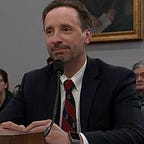Does the Big Short Explain Why We Had a Financial Crisis?
Michael Lewis’ book and film, The Big Short, are exceedingly entertaining. As Lewis tells it, Wall Street financiers blew up the economy by making massive bets on mortgage-backed securities that were created from loans made to people who could not possibly pay them back. Some quirky smart people saw that this was madness, and took short positions: essentially, they bet that the prices for these securities would plummet. Which they did, and the geeks got rich and the bankers got bankrupted. Intellect triumphs over greed.
But is this really all there is to the story? Of course not. Peter Wallison, for example, forcefully argues that government housing policy was a key factor in the crisis: it incentivized lending to high risk customers.
In February 2016, the R Street Institute hosted a nonpartisan panel discussion of the causes of the financial crisis. On hand were three individuals who wrote books about the financial crisis, and two former members of the congressionally-established Financial Crisis Inquiry Commission:
Alex Pollock (moderator and former head of a federal home loan bank);
Douglas Holtz-Eakin (president of American Action Forum);
Edward Murphy (Congressional Research Service);
Thomas Stanton, Johns Hopkins University;
Philip Wallach, Brookings Institution; and
Peter Wallison, American Enterprise Institute.
Figuring out why the financial crisis occurred and what can be done about it is an important subject. As panelist Ted Murphy (and a co-author) show, America has had many financial crises over the past two centuries. So we had best be ready for the next one.
